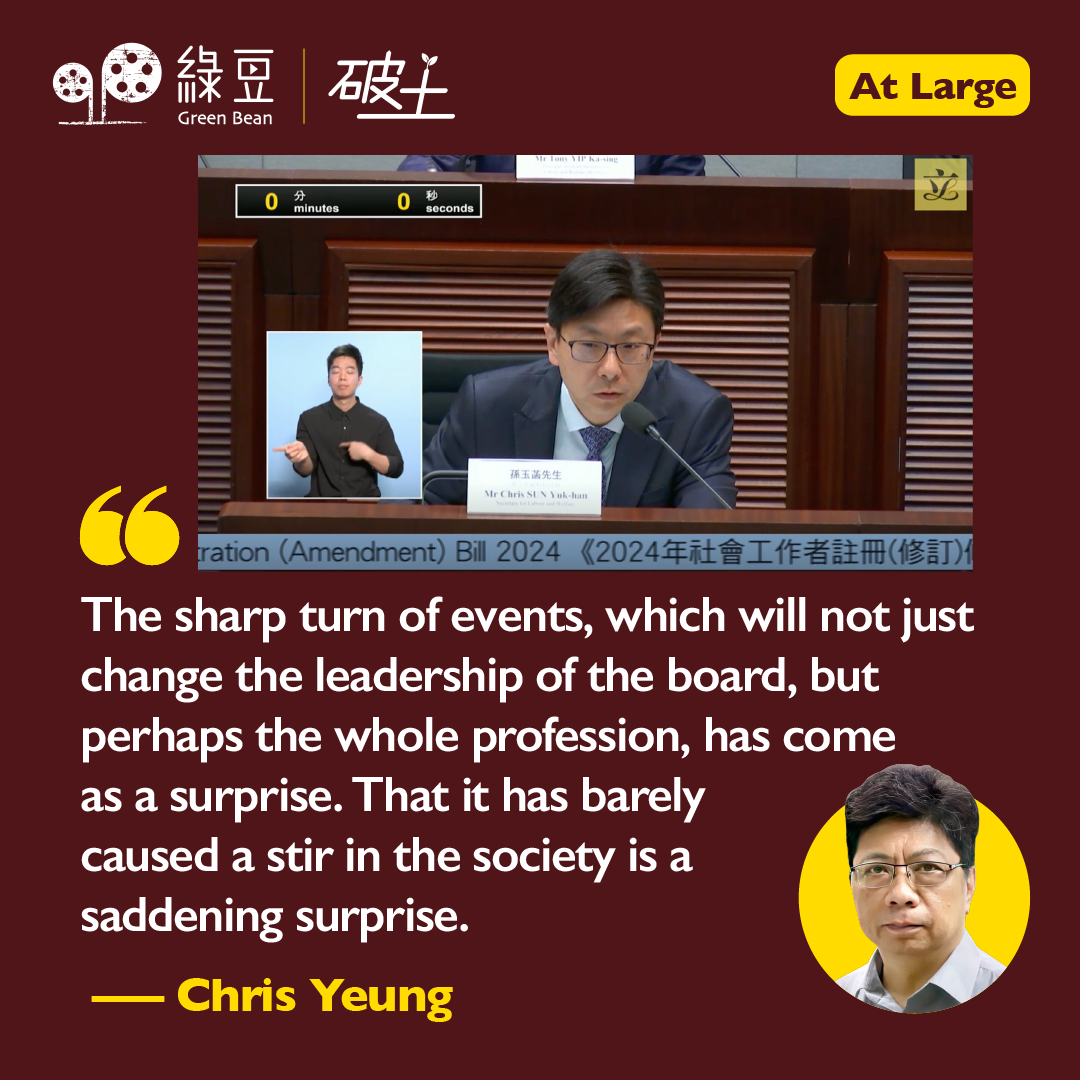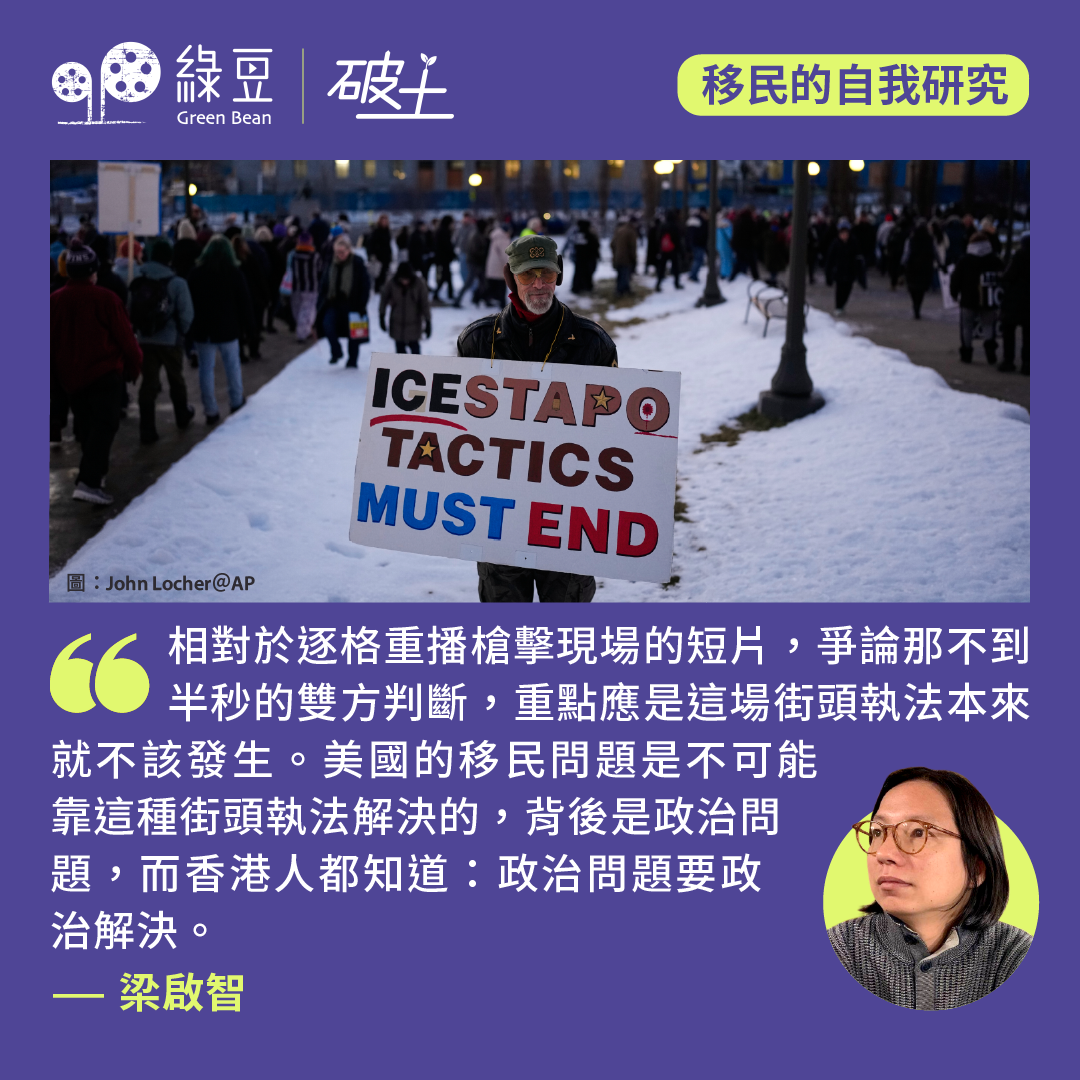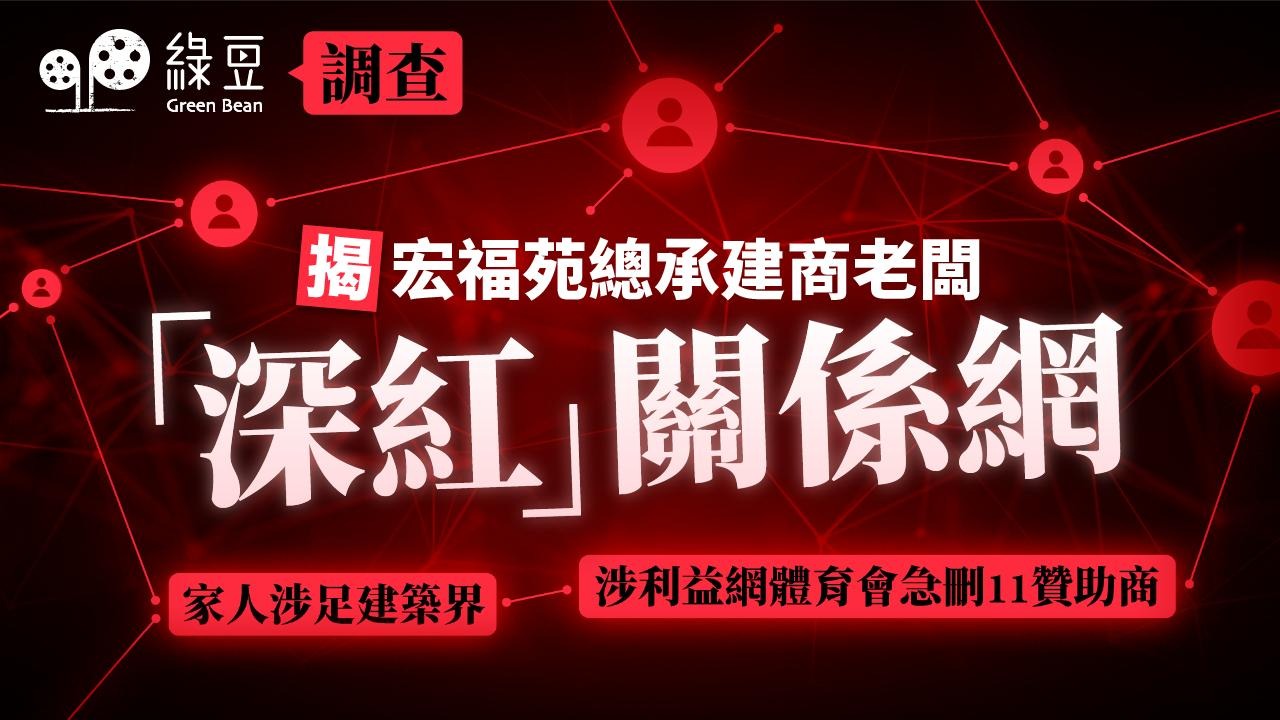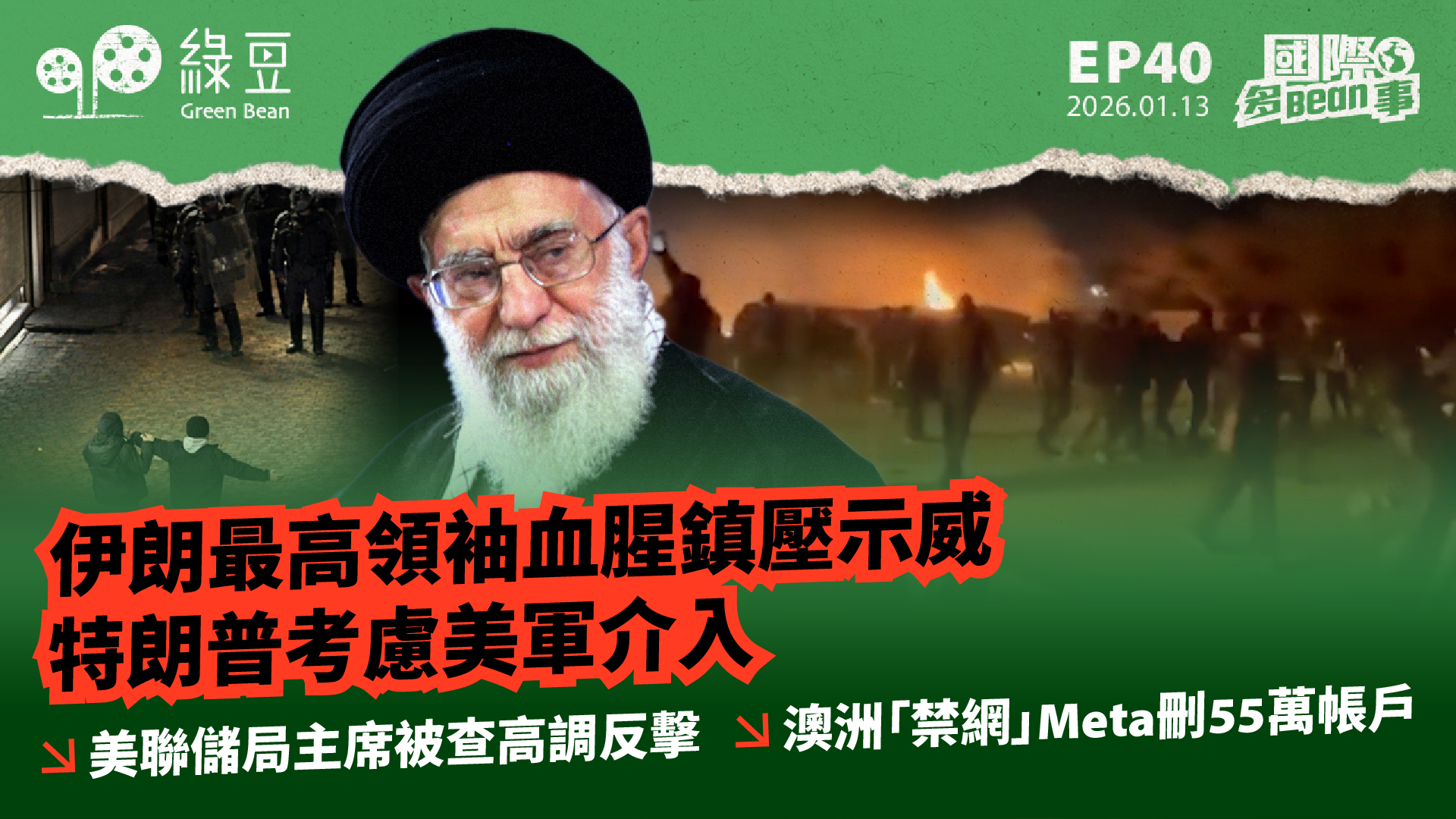No mercy on social workers body shake-up

Top Hong Kong government officials were full of promises before and after the enactment of the Article 23 legislation. They said its passage could strengthen protection of national security, thus enabling them to tackle economic woes and livelihood hardship.
Their pledges have been given a grain of salt by doubters and cynics. They were proved to be right. Governed by a “dare to struggle” mentality, the John Lee administration shows no signs of easing in its drive to “right the wrong” when it comes to power and control.
The Lee team’s security-obsessed governance approach has been fully demonstrated by Chris Sun, Secretary for Labour and Welfare, in the way he handled the issue of poverty line and a revamp of the statutory Social Workers Registration Board.
Sharp contrast
In sharp contrast with the vicissitudes and confusion of a government attempt to define poverty, Sun’s act to “right the wrong” of the regulatory body of social workers through a legislative amendment has been stunningly swift, merciless and on the target.
The surprise revamp of the registration board came shortly after a top-level body headed by Chief Secretary for Administration Eric Chan Kwok-ki, Sun’s immediate boss, held a meeting to review progress of poverty alleviation policies.
The anti-poverty task and the regulatory mechanism of social workers are unrelated. But the Government’s wishy-washy handling of the fight against poverty and its iron-fisted approach in revamping the social workers’ body are intriguing and illuminating.
More than one year after the Lee administration said they would strive to identify those who are genuinely poor and need assistance, they are still at a loss of defining poverty.
Sun admitted after the meeting this month the limitations of using the median income as a basis for determining the poverty line, adding that the government has ongoing projects aimed at accurately assisting those in need.
If the issue of anti-poverty saw more talk than walk, the revamp of the social workers’ body is just the opposite. There was almost zero public debate and discussion at the Legislative Council before several media outlets revealed the move, quoting sources.
Remarks made by Sun in defence of the revamp revealed the issue has been high on the minister’s agenda after he took the helm of welfare policy.
Urgent reform
He said on Wednesday the registration board needed urgent reform, noting authorities had called on the body to improve over the past two years but without success.
“In the application process to become a social worker or to extend their registration, there were some obvious cases where the public might think the board has deviated from their original purpose.
“For instance, some people had previously committed offences such as possessing or trafficking narcotics, but were allowed to carry on renewing their registration.”
Board chairman Ng Yut-ming said Sun had misunderstood how it handled the registration process for candidates with serious criminal records. Ng said some applicants had committed crimes in their youth but had seriously reflected on their past behaviour after re-entering society.
“For instance, the ‘Ten Outstanding Young Persons’ award had people who were convicted of drug possession and drug trafficking,” he said. “Does it mean that society should not give them a chance to turn over a new leaf?”
Ng said they had not been consulted about the revamp even after it was approved by the Executive Council.
Under the proposed amendments, most board members will be government appointees rather than members elected by registered social workers. The government appointees-dominated body will be allowed to promptly deregister social workers convicted of certain crimes and permanently disqualify those involved in serious offences such as endangering national security.
Compared with the issue of poverty, the registration – and deregistration – of social workers does not seem to have any urgency.
Sun thinks otherwise. “We see the urgency here … we must be responsible.” In a frank admission, he said: “We also have to be administrative-led.”
A saddening surprise
The change of “profession-led” to “administrative-led” of the social workers’ regulatory body is a significant departure from the city’s professional system, which puts emphasis on self-regulation with minimum government control.
Floated in 1984, a bill on the setting up of a social workers’ registration system was passed into law and was gazetted in June 1997.
The amendment bill is now scheduled to be tabled at the Legco for first reading on Wednesday (22/5). It is certain to be passed into law before its summer break in July.
The sharp turn of events, which will not just change the leadership of the board, but perhaps the whole profession, has come as a surprise. That it has barely caused a stir in the society is a saddening surprise.





